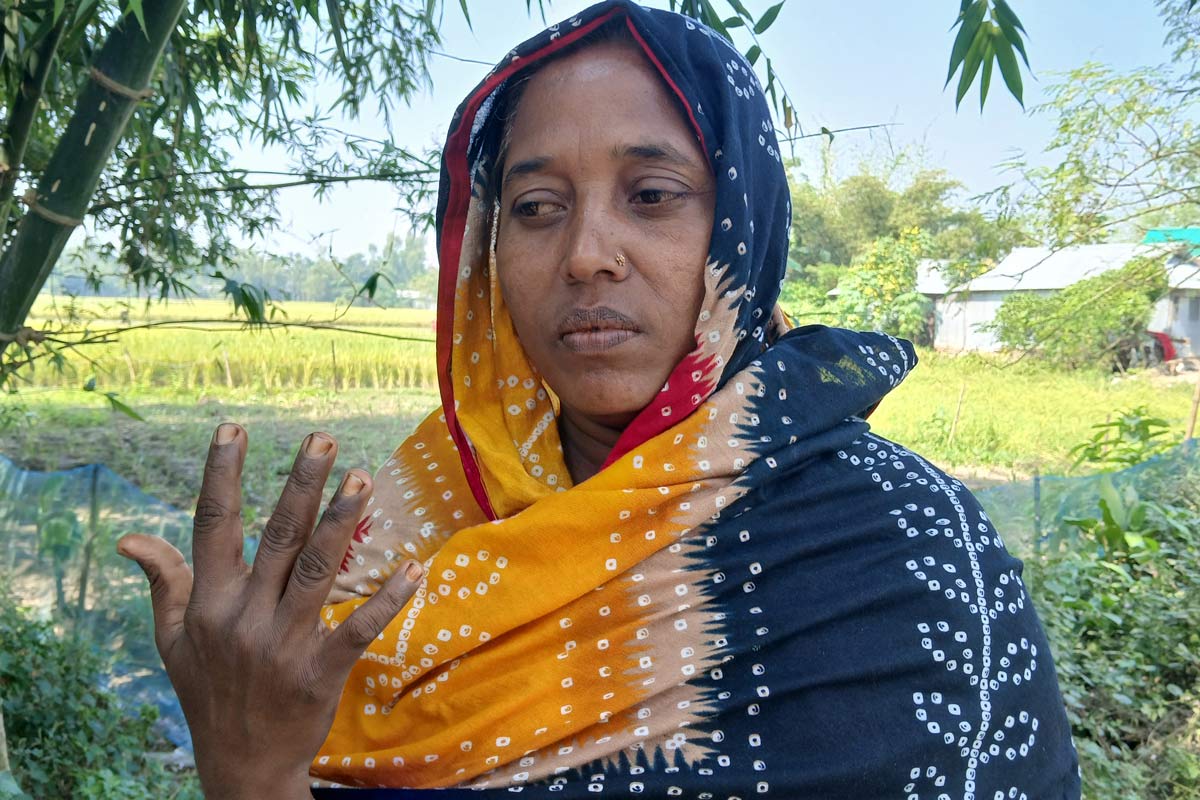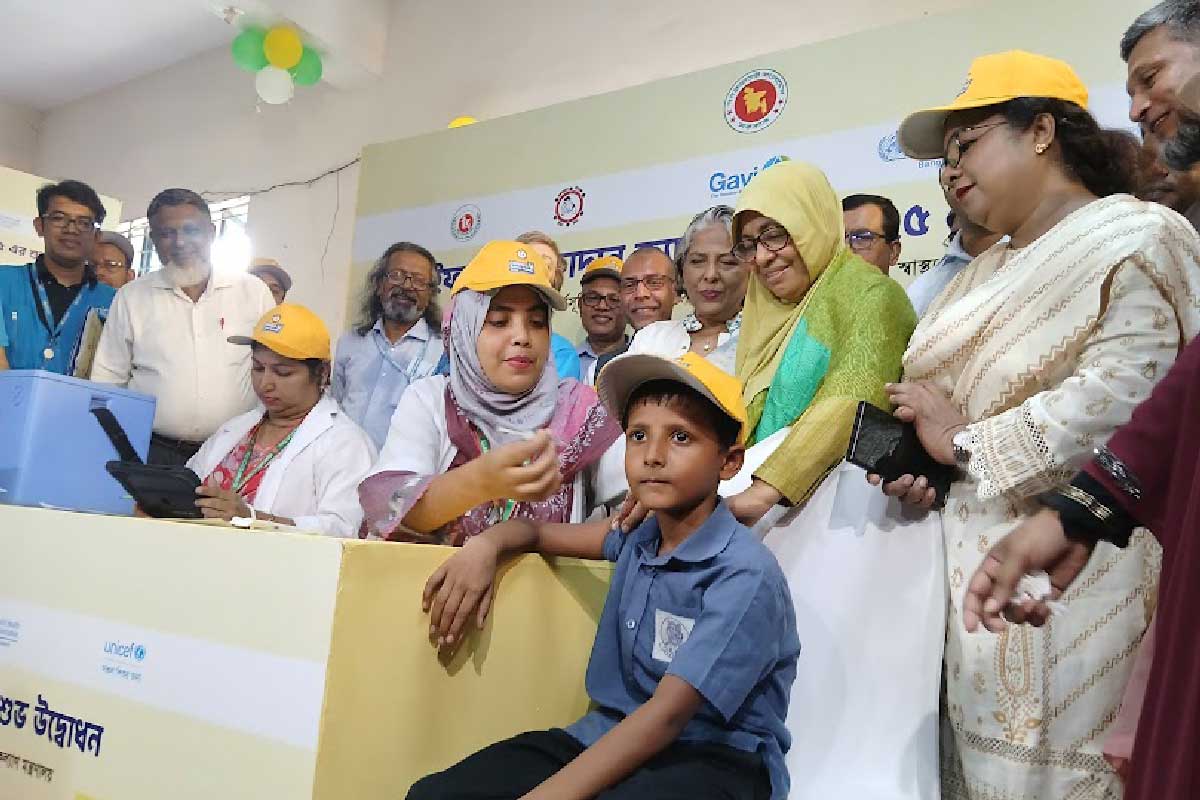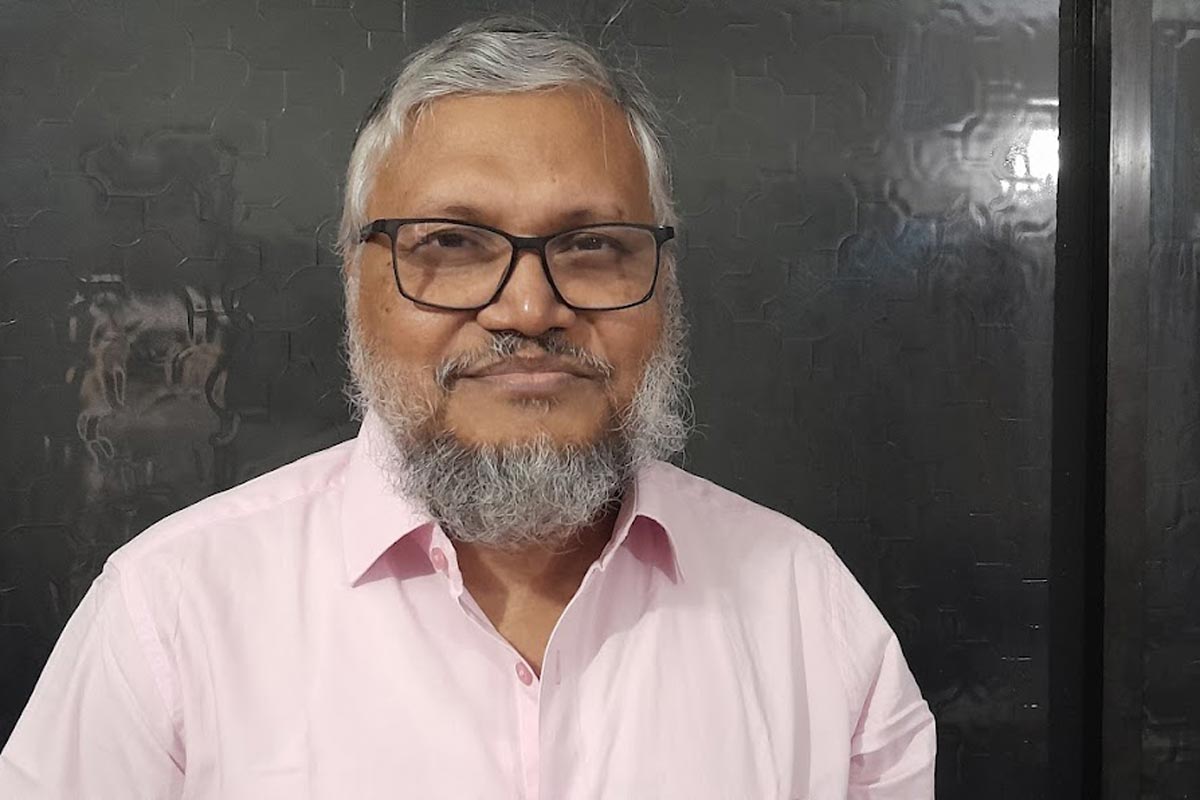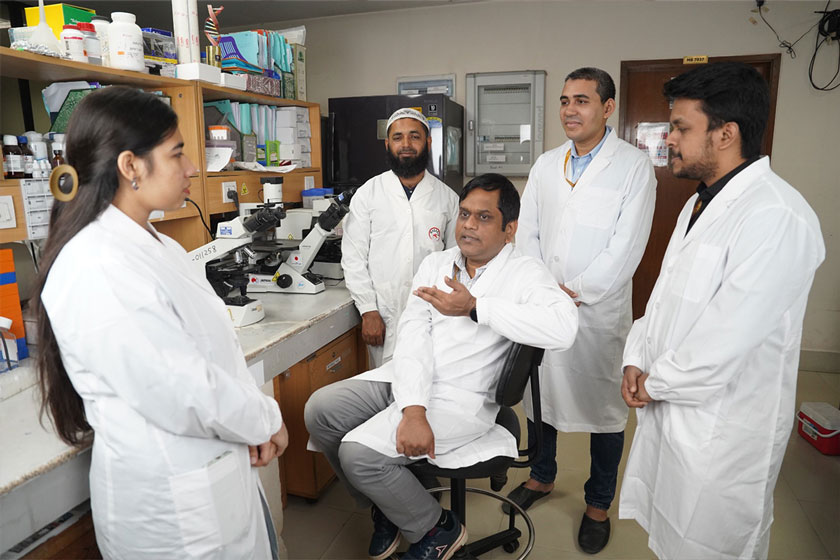Vaccines roll out in Bangladesh hotspots to keep cholera under control
Cholera is rarely a stranger in Bangladesh, but in Chattogram, Mohammad Al Amin learns how preventive vaccination is offering residents relief.
- 15 December 2023
- 4 min read
- by Mohammad Al Amin
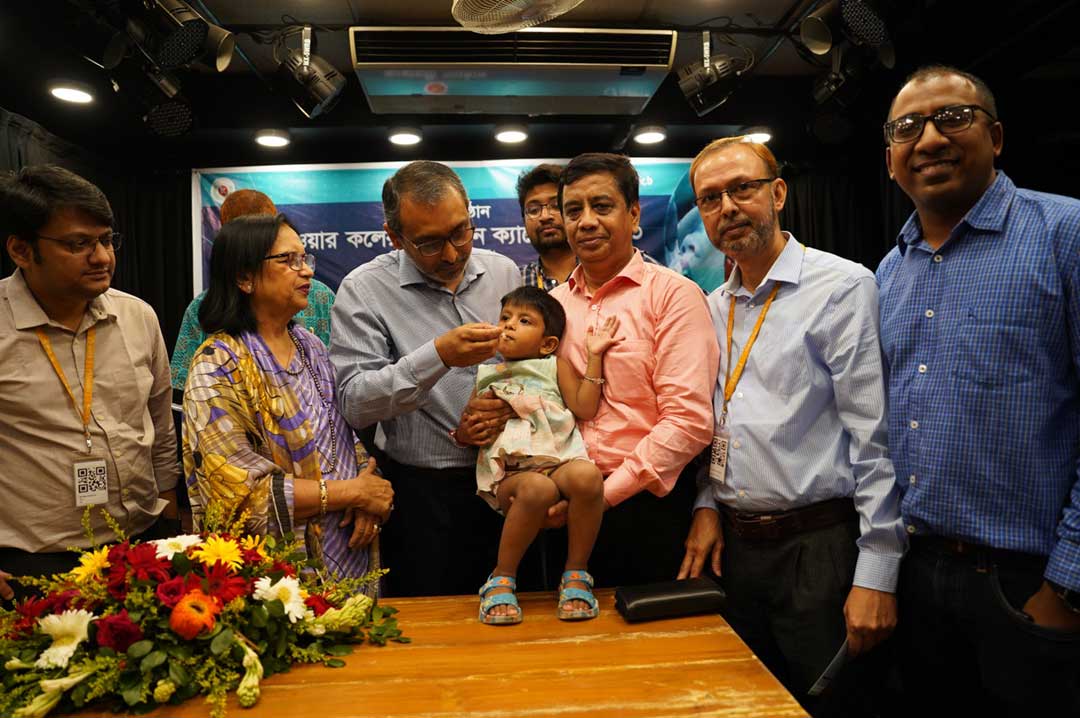
Preventive vaccination in cholera hotspots is helping to keep the deadly waterborne disease under control in Bangladesh, a cholera-endemic country that typically sees cases year-round.
In September and October, oral cholera vaccines (OCVs) rolled out to vulnerable populations in two parts of the metropolis of Chattogram, also known as Chittagong.
It’s clear that access to good water and sanitation are indispensable. But the vaccines can buy time and, along with vital oral rehydration solutions, help save lives.
"The two areas are cholera-prone, where cholera outbreaks took place in 2022," Mohammad Imam Hossain, Chief Health Officer (In-charge) of the Chattogram City Corporation (CCC) told VaccinesWork. The upshot, he said, is that in the months since, the situation is "under control", no notable numbers of diarrhoea cases having been reported from the area since the two-stage campaign.
The Health Officer sounded an optimistic note: "This vaccination must reduce the cholera and diarrhoea burden in the area," he said. "At the same time, some more areas should be brought under the vaccination and this should be continued."
Chattogram corrals cholera
"We are earlier worried due to previous reports of cholera patients in our area. However, receiving this vaccine at total free of cost, we are feeling protected and now become tension-free. Me, my wife and my six-year-old daughter have received the vaccine," said Md. Ibrahim, a resident of Anandabazar, part of Ward 38 in the CCC area, who received his vaccine at a temporary site set up on the grounds of Chandarpara Community Centre.
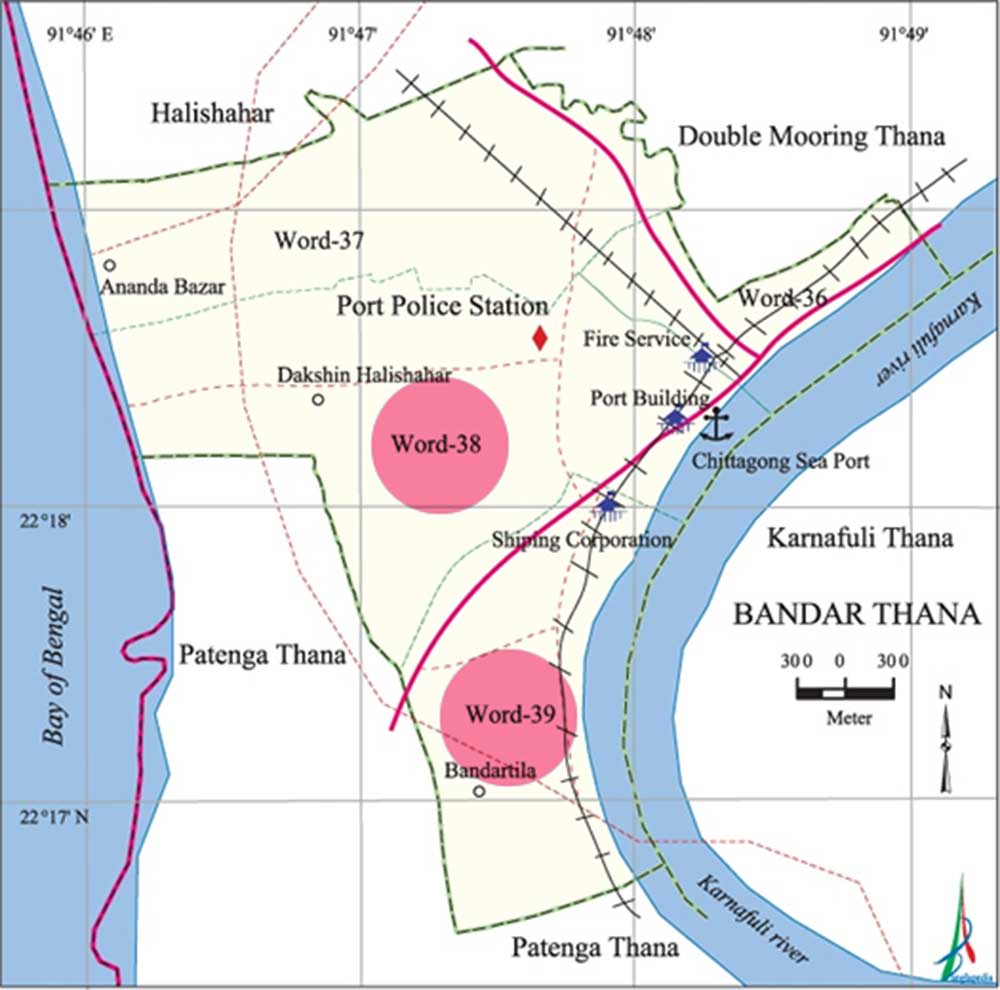
Credit: icddr'b
A total of 135,323 individuals clustered in Wards 38 and 39 of the Chattogram area received the double dose of the vaccine during the vaccination campaign. The vaccine, which goes under the trade name of Euvichol-Plus, was given to all residents aged over one year, with the exception of pregnant women and people who had received another vaccine in the past 14 days.
Uptake was broadly eager, according to vaccinators, including Md. Saiful Islam (Mamata), who manned a temporary vaccination centre at Udayan Sangha, also in Ward 38. "People took the vaccine with enthusiasm, in queue. We covered our target of feeding the oral vaccine among 600 recipients," he said.
That's probably because the risk is clear to the people of Chattogram. A recent surveillance report on cholera in Bangladesh showed the highest burden of disease was concentrated in Chattogram, Narayanganj, Cumilla and Cox's Bazar (7–14%).
Have you read?
Dr Firdausi Qadri, Acting Senior Director of the Infectious Diseases Division of leading Bangladeshi health research institute ICCDR,B, said in a statement: "From Bangladesh's National Cholera Control Plan 2019–2030, we know that there are 144 areas across the country with a high risk of cholera, many of which are in Chattogram. I am hopeful that through this vaccination programme, we will be able to reduce the risk in Wards 38 and 39 of Bandar Thana."
Dr Aninda Rahman, Deputy Programme Manager (CDC) of the Directorate General of Health Services (DGHS) said like other cholera-prone areas, recent outbreaks had been recorded in Wards 38 and 39, pushing those parts of the city to the front of the vaccination queue.
"We had some OCV in our stock and we applied to the International Coordinating Group (ICG) [of the Oral Cholera Vaccine Stockpile] to allow us to use the vaccines in the two areas. Based on surveillance report, we selected the areas for vaccination to curb the cholera cases. Hopefully the vaccine recipients will be protected from cholera-related diarrhoea for next two years and more," he added.
According to the DGHS, Bangladesh records well over 100,000 cholera cases annually, and is home to an estimated 66,495,209 is at risk of the disease. That makes Bangladesh an important part of the global fight against cholera, which, under the banner of the Global Task Force on Cholera Control, is targeting a 90% reduction in cholera deaths by 2030.
To achieve that, it's clear that access to good water and sanitation are indispensable. But the vaccines can buy time and, along with vital oral rehydration solutions, help save lives.
As Dr Ashraful Islam Khan, Scientist (Enteric and Respiratory Infections) at the Infectious Diseases Division of the ICCDR,B put it, "In a long-term plan, the country has to ensure safe water and improve WASH (Water Sanitation and Hygiene) facilities to control the country's cholera situation. At the same time, vaccination will have to be continued as a preventive measure."
The DGHS is currently running off a roadmap called the National Cholera Control Plan 2019–2030, under which more than 3.5 million people were vaccinated in Dhaka in 2020 and 2022.
Describing the country's cholera situation, the DGHS official said though they received reports of cases, those cases didn't amount to an outbreak of alarming scale, meaning that the cholera situation is currently under control.
